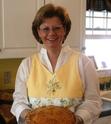A WINTER OF CHANGE
Climbing the long steep hills towards home, Earnest Grant could see the faint flickering of light from a kerosene lantern glowing in a window of a distant farmhouse. It felt as though this familiar scene had been painted on the horizon just for him. As he drove through the cold gray mist of dawn, he knew he was almost home. Home where he had been stripped of any illusion that he had control over his life. This was where he had struggled with a painful youth, and vowed to God and himself to never return.
His father, Fred, had taken a bad fall from the hayloft a week earlier, and at his mother’s begging request, Ernest decided to go home and face the life he’d left behind. Fred Grant hated the winter months. He often said, “because of how they confine a man’s soul, the earth and all that inhabits it.” With the warmer days of Indian summer gone, the doors and windows that were once open and provided a feeling of freedom were securely shut. The mornings now brought little sunlight through frosty kitchen window panes.
The bitter frost of late fall gave way to the stark reality this old farmer had tried to forget for years, he and his wife, Liddell, now in their late seventies were all alone. They had not seen their only son, earnest, in almost twenty years. Ernest and his father at not seen eye to since his youth. Fred wasn’t much for hard work, but, he always had plenty for Ernest to do. As a young man Fred was forced into staying on that old farm and caring for his parents. His father was a bit of a tyrant and saw to it that Fred stayed next to penniless and tied to a life on the farm much like his own.
By the time Ernest was twelve Fred seemed to resent, what he considered a luxury for him to go off to school everyday, but, Liddell Grant was determined to see her son have a better life and she knew that meant an education. as time passed by this “special privilege” seemed to deepen the divide between Ernest and his father. Fred always made a point of listening to what other folks had to say, but when it came to his son, he heard the words but rarely ever listened. Hard work, plenty of it and unearned respect were all Fred Grant ever wanted from his son.
By the time Ernest was seventeen he had feelings that went quick to his core. Often filled with anger, guilt and despair, he decided to leave home. A couple of towns away he knew he could find work in one of the mills. Mill town life was different to be sure, the company store usually owned you body and soul. Between housing rent, fuel and groceries all paid back to the mill owner, you scarcely stood a chance of getting by never mind a head. The day Ernest left his father stood somberly on the front porch with a dead stare across the back forty. His mother’s head hung low, using her soiled old apron to catch the hot tears welling up in her eyes. A voiceless cry of sorrow and regret crept up Fred’s throat as Ernest loaded the last suitcase into the old Ford truck. As Ernest slammed the rusty creaky shut deep inner sadness filled his heart as tears filled his eyes. Never looking back Ernest pushed in the choke and popped the clutch as he rolled out of the dirt driveway.
Weary and discouraged from his fall, Fred lay waiting for Ernest, feeling a secret shame that he had never once gone looking for his son all those years. As Ernest made the last sharp turn into the barnyard a light snow started to fall quietly over the pale brown hay fields. The crisp cold scent of winter was subdued by the smell of chimney smoke that filled the air. Feeling like a stranger as he approached the kitchen door, his prayers never ceased for the strength to face the unknown reaction of his father. Gently he knocked, then with groan of creaky hinges the door slowly opened, after the door scraped across the uneven kitchen floor, his mother’s aged and weathered face appeared. In an instant Ernest could see the same depth of love he’d always remembered in her large brown eyes.
It seemed the only words she could say was; “Son, please come in, sit down and eat.” It felt like an eternity since Ernest had consumed her good home cooking. The familiar surroundings felt strange and an intense silence seemed to fill the air. Suddenly the sound of his father stirring in the parlor on a makeshift hospital bed that his mother had made from the old cot in his room. Hesitantly getting up from the table Ernest knew it was time to face his father. Walking through the parlor door Ernest saw a physically bruised and broken man in a shell of what his father once was. Now in the winter of his years, Fred Grant could no longer avoided the painful reality of his prideful stubbornness. With tear filled eyes he reached out his hand, “Son, I’ve lived in vain and we’ve both lived in a world that should have never been the way it has for any child.” Ernest suddenly realized that he held no less guilt than his father for not learning how to live and forgive. Grasping his father’s hand he glared at the duck ducked taped crack in the parlor window. The cold blowing snow had seemed to become a comfort and not a confinement for their world. One provided by a loving God to be embraced for a time of reflection and healing.



